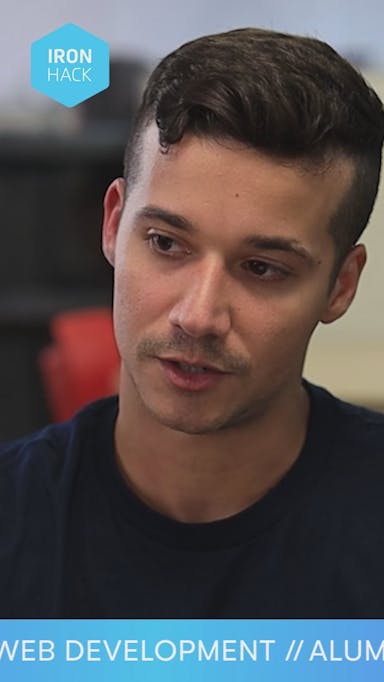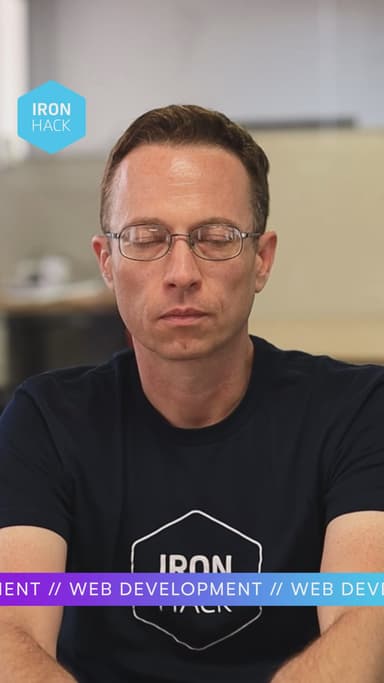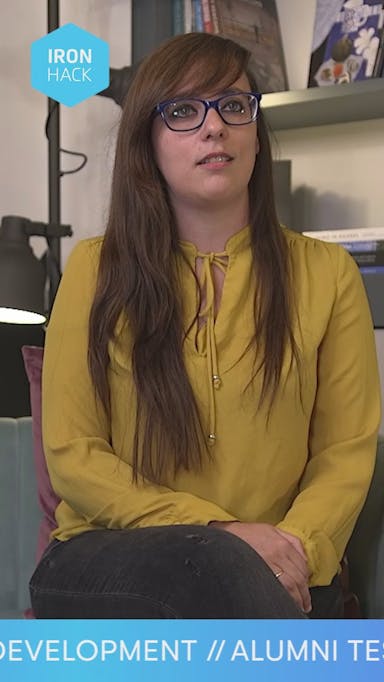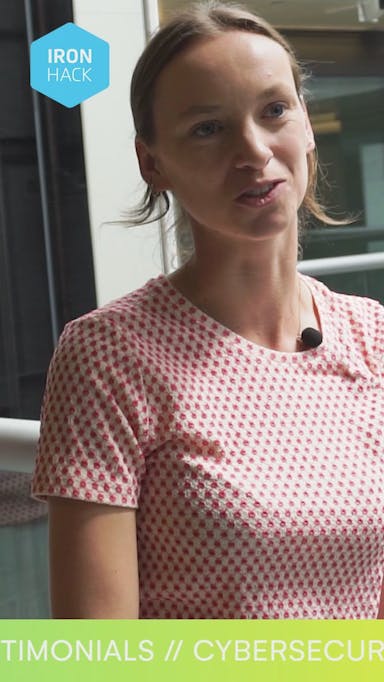Meet our alumni and follow their journeys into tech
Learn more about the Ironhack experience from those who know it best...our brilliant alumni!

Michael
Software Engineer

Dustin
Instructor

Irene
Apprentice Software Engineer

Coralie
Information Security Officer